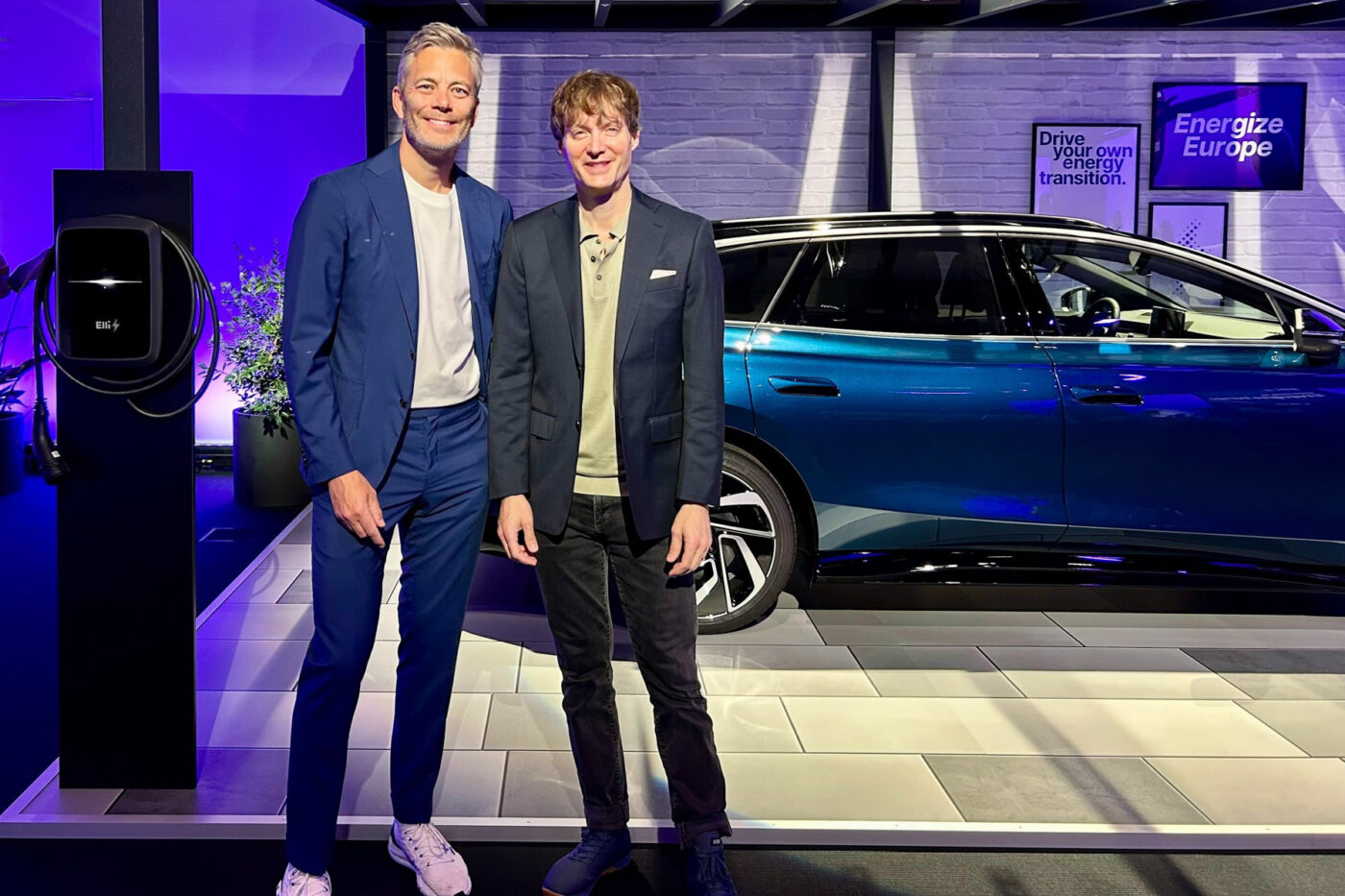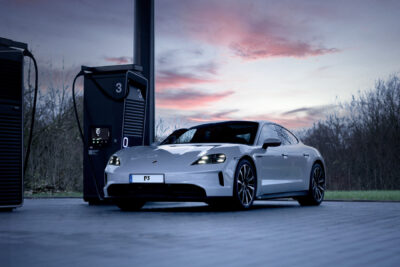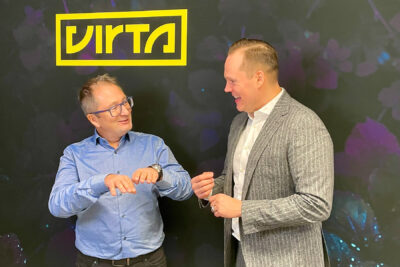VW subsidiary Elli wants to reduce charging costs with Otovo
The two partners describe their photovoltaic system and electric car charging offer as a “holistic solution that combines clean solar energy with electromobility”. This combination should enable both companies to “develop tailor-made solutions for the growing market for electric vehicles”. The initial focus will be on efficient PV surplus charging, in which surplus solar energy is used directly to charge electric vehicles.
As a first step, European customers of the VW Group can therefore also purchase a PV system when they buy the new Elli Charger 2 and have it installed by an Otovo solar installer. The German charging infrastructure provider explained that the wallbox and solar storage system are coordinated in such a way that consumers can charge their car directly with excess PV power and save on charging costs. The vehicle can be charged at night with cheap grid electricity while the solar power stored in the house battery can be held for the next morning.
If the electric car is charged with surplus PV electricity, the financial advantage is said to be up to 40 per cent lower charging costs. If, in the second case outlined, the electric car is charged with night-time electricity to increase PV self-consumption in the household (or the electric car is not connected to the home wallbox near the PV system during the day), the savings potential naturally depend on the respective electricity tariff. Besides the clear financial savings, PV surplus charging also offers ecological benefits.
“Through the cooperation with Elli, buyers are presented with our solar solutions at the best price directly at the point of sale,” adds Andreas Thorsheim, CEO and founder of Otovo. “This makes the savings associated with PV systems directly visible. The Otovo-Elli partnership enables us to directly demonstrate the benefits of our photovoltaic systems and thus significantly expand our joint market potential.”
Technically, this involves unidirectional AC charging – the alternating current only flows from the charging station into the car. Here, the preferred power source of the charging station is part of the cooperation, so that in future this will also take place primarily or exclusively via the solar system. This is already possible, but the cooperation is intended to provide customers with a simple and preconfigured approach.
Offering PV systems at the point of sale
“In order to further promote electromobility, we need to make the entire charging ecosystem simple, accessible and cost-effective for customers,” says Giovanni Palazzo, CEO of Elli. “Therefore, the partnership with Otovo is not only an important sign for the charging and energy business in Germany and Europe, but above all for the intelligent combination of the mobility and energy transition at home. We are delighted about this important step and the pioneering cooperation.”
At Elli, the Otovo offer is also linked to the new Elli Charger 2. According to Elli, the new wallbox is designed for “cost-effective charging for the energy transition at home”, as it can charge solar or electricity price-optimized. The “everything from a single source” approach is emphasized: “Volkswagen offers an ecosystem that is unique in the industry, consisting of an electric vehicle, the Group’s own wallbox, its own electricity tariff and, in future, a photovoltaic system via its partner Otovo,” the press release states.
The Elli Charger 2 was developed with a focus on Europe and will be available in 28 countries from the summer. The wallbox has been equipped with “a broad power spectrum to accommodate regional differences in home connections”. In principle, the wallbox is compatible with all vehicles with a type 2 connection – the maximum charging power is therefore 22 kW. Elli advertises on its homepage with “trusted Volkswagen quality” and production in Germany.
There will be four versions of the wallbox. The two basic models “Connect 11” and “Connect 22” enable charging with a maximum of 11 or 22 kW, offer WiFi and Ethernet as network interfaces and are available with a 4.5 or 7.5 meter cable. The energy meter is labelled “Onboard” – presumably meaning the vehicle. The two variants above this, “Pro 22” and “Pro 22 (calibration law), also have an LTE connection and a MID meter or a meter that complies with calibration law – the calibration law variant is aimed purely at the German market. The prices are between 759 and 1,499 euros.
“Our new product stands for the highest quality and innovative strength,” says Palazzo about the new wallbox. “The connection to Volkswagen as a multi-brand group is a great added value for us as a company, but above all our customers benefit. They have access to a wallbox that has been developed in close cooperation with vehicle and mobility experts. In addition, the product is ‘made in Germany’ and secures the local production site.”
Elli has also announced its entry into another business segment whereby the company will develop and market energy storage projects on an industrial scale with partners, with individual projects with an output of up to 350 MW and 700 MWh of storage capacity planned as a first step. The first storage project could be launched in Germany as early as 2025. The business has the potential for strong growth: demand for storage solutions will increase across Europe in the coming years, with experts expecting growth by a factor of 100 in Germany alone, according to Elli.
Reporting by Sebastian Schaal with information via email volkswagen-group.com, volkswagen-group.com (Elli 2 charger)





0 Comments